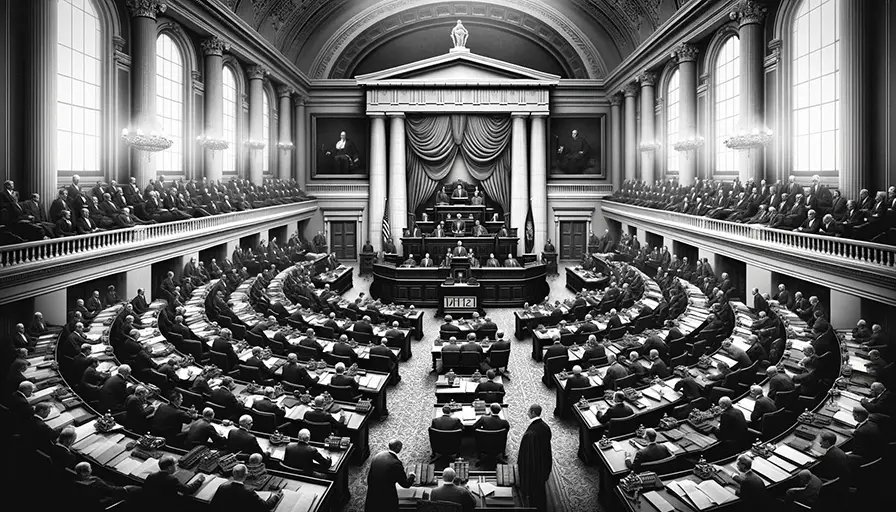This article touches on the current state of student privacy law, examining industry self-regulation efforts, federal legislation, and pioneering state laws that aim to safeguard student data.
Incognito Browser’s research team peered into the hidden realms of student surveillance, uncovering tactics that require urgent attention. We have assembled a unique and incredibly stirring report that casts light on the covert operations widespread in educational environments. This document, born from rigorous investigation, reveals the extensive surveillance practices deeply embedded in academic institutions, proving crucial for anyone dedicated to safeguarding digital privacy. We invite you to explore these discoveries through our report, exclusively accessible in our privacy browser app, shielded from those who wish these details remain unseen. Engaging with our findings not only broadens your understanding of student monitoring but also draws you into a significant discussion on protecting privacy in educational settings. Equip yourself with knowledge that has long been shrouded in secrecy.
Get Access to the Exclusive Content
This exclusive content is only available to Incognito Browser users. Install the app and get access now!
Industry Self-Regulation: The Student Privacy Pledge
The Student Privacy Pledge, an initiative enforced by the Federal Trade Commission (FTC), represents a voluntary commitment by ed tech companies to protect student data. However, this pledge is not without its shortcomings. The definitions of “student information” and “educational service providers” within the pledge are notably vague, allowing for potential loopholes. For instance, the pledge’s narrow definition of student information may exclude data that, while not directly identifying, can still be used to profile students. Similarly, the limitation of the pledge to services “designed and marketed” for education can leave a grey area for products used in educational settings without being specifically intended for them. These loopholes highlight the limitations of relying solely on industry self-regulation to protect student privacy.
Federal Laws: FERPA and COPPA
At the federal level, two key laws—the Family Educational Rights and Privacy Act (FERPA) and the Children’s Online Privacy Protection Act (COPPA)—form the backbone of student privacy protection. FERPA restricts the disclosure of student education records without parental consent, but its “school official” loophole allows schools to share data with certain third parties deemed to perform institutional services. This exception has raised concerns about the extent to which schools can, without explicit parental consent, permit ed tech companies to access student data.
COPPA, on the other hand, aims to protect children under the age of 13 in the digital world, requiring parental consent before the collection of personal information online. Yet, ambiguities around parental consent—specifically whether schools can act on parents’ behalf in providing it—muddy the waters of COPPA’s application to ed tech, posing challenges to its effectiveness in safeguarding young students’ data.
State Legislation: Leading Examples
In response to the complexities and gaps in federal law, several states have stepped forward with their own legislation to address student privacy. California, Colorado, and Connecticut have emerged as leaders in this space, each taking distinctive approaches to enhance student data protection:
- California: The Student Online Personal Information Protection Act (SOPIPA) sets a precedent by directly regulating ed tech companies, prohibiting targeted advertising based on student data, and outlining strict criteria for data collection and use. However, SOPIPA’s exemptions for “general audience” services and its silent stance on data retention highlight the need for even more comprehensive protections.
- Colorado: The Student Data Transparency and Security Act (SDTSA) builds on SOPIPA’s foundations, introducing categories for “school service contract providers” and “school service on-demand providers,” thereby clarifying the responsibilities of different ed tech entities. Importantly, SDTSA emphasizes transparency and parental notification, mandating that schools disclose third-party contracts and data practices to families.
- Connecticut: “An Act Concerning Student Privacy” further advances the dialogue by not only addressing the obligations of service providers but also mandating specific contractual protections when schools share data with third parties. This law also establishes a task force to explore ongoing student privacy concerns, signaling a commitment to continuous improvement in student data protection policies.
As the digital transformation of education accelerates, the conversation around student privacy law becomes increasingly critical. Incognito Browser’s privacy research team is on the job, reporting to you continually. While industry self-regulation and federal laws lay an important foundation, state legislation is playing a crucial role in filling the gaps and addressing the nuanced challenges of protecting student data in the modern digital age. As educators, policymakers, and technology providers navigate this complex landscape, the collective goal remains clear: to ensure that innovation in education does not come at the expense of students’ privacy and security.



